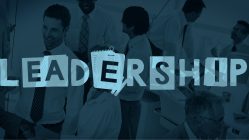The pandemic pushed employee wellness to the forefront of corporate agendas. Organisations stepped up to help and allow their employees to deal with health emergencies, offering a variety of wellness advantages ranging from flexible working hours to improved health insurance options. The approach to employees wellness is now multilayered, with various touch points including performance management, employee engagement and recognition. Though companies today have a far more varied workforce than they did in the past. Each generation has its ideals, strengths, limitations, and working habits – Generation X (1961–1980), Millennials (1981–2000), and Generation Z (1997–2012). Organisations must be aware of these distinctions and be able to account for them when developing recognition programs.
These generations have different skill sets and career ambitions, so bridging the gap is challenging. The yearning for recognition is something that all generations share. Employees want to be recognised for their hard work and dedication, regardless of their age or generation. Even then, designing rewards and recognition strategies can’t be approached through a “one size fits all” ideology. Creating personalised rewards and recognition strategies would be the right way to address this challenge. Organisations that seek to engage all employees should allow flexibility in how employee benefits are chosen and distributed. Let’s look at some other factors that should determine the R&R strategies of any company with a multi-generational workforce:
Also Read: What’s next in HR? : Rajiv Kumar
Design for each segment
If an organisation has a multigenerational workforce, it’s important to customise the R&R programs as per each segment. As per Deloitte Global 2021 Millennial and Gen Z Survey, both generations are inclined to choose their workplace based on personal ethics and meaningful action. Thus to attract and retain them the mission, vision and values should be a part of the company’s presence both online and offline with no window-dressed causes. Similarly benefits for them need to be unique, up to date, personalised and thoughtful.
Experimentation is the key
The key challenge is to keep the multigenerational workforce engaged with their different sets of expectations. As per SHRM, GenXers will continue to work with millennials and generation Z for years to come. So when it comes to employee benefits and engagement, it’s important to recognise the value of this seasoned workforce. Opportunities for learning and training related to technology, data, and metrics will be much appreciated by Generation X as opposed to Gen Z, which is the first generation to grow up with access to the internet and various digital technologies. By identifying each motivating factor, organisations should keep experimenting with different perks/benefits to arrive at a system that works for everyone.
Even then, designing rewards and recognition strategies can’t be approached through a “one size fits all” ideology. Creating personalised rewards and recognition strategies would be the right way to address this challenge.
Need-based rewards
As per a study conducted by Metlife, Generation X values benefits and engagement that ressures financial stability. Better benefits including but not limited to insurance, bonuses, work-life balance are top factors that fosters high engagement amongst them. A research released by Dell surveyed 12000+ Gen Z employees across 17 countries and revealed some interesting facts. While they do value financial rewards, opportunities for professional advancement are highly solicited. They also value regular communication with the management regarding their work performance and skills. Thus an employee survey will be a good point of reference to design a need based reward system.
Immediate rewards
Talent management is still considered as one of the most crucial challenges for many organisations. While recruiting the top talent is one end of the spectrum, the other involves engaging them for a long term association. Lack of recognition might lead to loss of talent to the competition. It is time for top management to derive a robust rewards and recognition system that identifies/rewards employees on a continuous basis.
In comparison to unigenerational models, a multigenerational workforce can bring diverse viewpoints to the table, develop more problem-solving abilities, forge learner-mentor opportunities, aid in improved knowledge transfer and retention, and provide many other benefits. Most businesses now employ people of various ages, each with their own set of characteristics. They do, however, have certain characteristics in common. As a result, in order to create a harmonious workplace, businesses must highlight commonality while also celebrating differences. This can lead to a great employee experience and allow people to reach their full professional potential.
It is pivotal to connect with employees to understand what life stages are influencing their desires, regardless of what salary and benefits plan employers wind up offering. Employee surveys and focus groups can be a good point to start with R&R strategies. Once the final program is in place, effective communication, targeted campaigns should be crafted to emphasise the relevance of each strategy to the workforce. HR leaders can build programs that address the needs of a multi-generational workforce by listening to employees and applying relevant data. In the ever changing world of employment, for organisations to grow successfully, employees must thrive too.
























Add comment